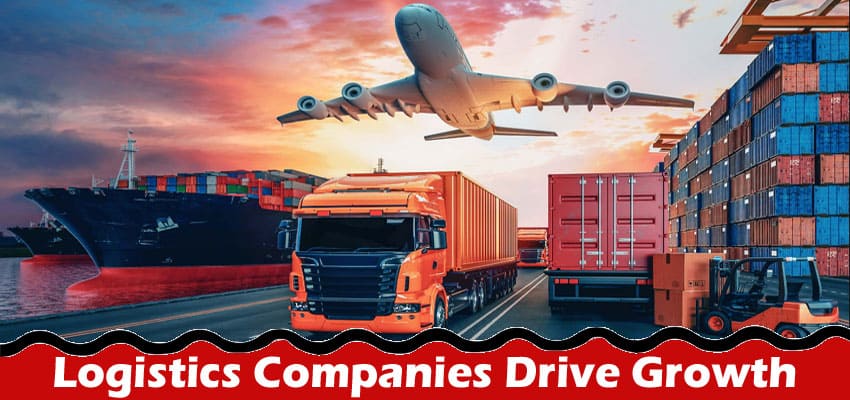Have you ever wondered how transportation across the globe takes place in such an interrupted manner? Goods and commodities travel across international borders every day via different modes, catering to the needs of the global economy and fulfilling the demand of consumers located in every nook and corner of the world. Well, the major force behind this well-maintained supply chain network is logistics companies.
The major force that has revolutionised the traditional retail business landscape is e-commerce and the evolution of the logistics business has thoroughly supported digital commerce globally. If shipping is the backbone of e-commerce, then logistics forms the very plinth of shipping and order fulfilment.
Logistics is an umbrella term that constitutes several steps involved in the aggregation of raw materials from different corners of the world and channelising them through established supply chains, further sourcing them in different geographic locations. This entire process does sound easy-peasy, but in reality, it’s a hell lot of coordination, administration, monitoring, and communication. That’s how logistics gives life and blood to businesses worldwide.
In 2022, the UK logistics market had a value of US$478.3 billion. Looking ahead, IMARC Group projects that the market will continue to grow at a compound annual growth rate (CAGR) of 6.18% from 2023 to 2028, reaching US$ 689.2 billion.
Understanding the Basics of Logistics
The term “logistics” describes the comprehensive planning, implementation, resource coordination, and management of the flow of goods from the point of origin to the point of consumption. It largely consists of supply and demand forecasting for third-party providers, packaging, inventory management, warehousing, production, security, material handling, and information integration.
To satisfy client needs, a logistics company provides affordable transportation and storage of tangible resources, such as liquids, food products, equipment, and materials, as well as intangible things like information. By reducing procedures and increasing efficiency, logistics management helps to reduce operational costs, increase profitability, and enhance customer satisfaction.
7 Pillars of Effective Logistics Management
Effective logistics relies on several key pillars to ensure smooth operations and optimal performance. These seven pillars of effective logistics are:
- Planning and Strategy
Proper planning and strategic decision-making are crucial for effective logistics. This involves forecasting demand, setting objectives, designing efficient supply chain routes, and creating contingency plans to address unexpected disruptions.
- Transportation
Transportation is a fundamental pillar of logistics. It involves selecting the most suitable modes of transportation (e.g., trucking, air freight, ocean shipping) based on factors like cost, speed, and the nature of the goods being transported.
- Inventory Management
Efficient inventory management is essential to avoid stockouts and overstocking. Striking the right balance helps reduce carrying costs while ensuring products are available when needed.
- Warehousing
Warehouses play a vital role in logistics by storing and managing inventory, enabling efficient order fulfilment and distribution. Proper warehouse layout and organisation can enhance productivity and minimise handling time.
- Technology and Automation
Embracing technology and automation can significantly improve logistics efficiency. This includes adopting warehouse management systems (WMS), transportation management systems (TMS), and other software solutions that streamline processes, track shipments, and provide real-time visibility.
- Collaboration and Communication
Effective logistics relies on seamless collaboration and communication between different stakeholders, such as suppliers, manufacturers, distributors, and transportation providers. Clear and timely communication helps prevent misunderstandings and ensures all parties are on the same page.
- Performance Measurement and Continuous Improvement
Regularly measuring key performance indicators (KPIs) and analyzing data allows logistics companies to identify areas for improvement and make informed decisions. Continuous initiatives for improvements help optimise logistics processes and enhance overall efficiency.
By focusing on these seven pillars, you can build a strong and effective logistics framework, ensuring the timely and cost-effective movement of goods and meeting customer demands efficiently.
Role of Logistics in Driving Growth and Profitability of a Business
Every service-based business, be it small or large, requires moving goods and services from the source of origination to the destination or point of consumption. This might sound quite straightforward, but the movement of goods from point of origin to any particular destination involves multiple stages which are covered under logistics management. Logistics include these essential process flow:
- Procurement
- Inventory and warehousing
- Material Handling
- Labelling and packaging
- Shipping, distribution, and delivery
- Reverse logistics
All these above-mentioned stages are deeply interconnected and the failure of one leads to delay in another, just like a domino effect! Therefore, coordination and clear communication are the most important elements of logistics management. Every best logistics company prioritises these elements to maintain the uninterrupted logistics flow throughout supply chains.
Leading shipping aggregators like NimbusPost offers the most economical supply chain and logistics services across the UK mainland and offshore postcodes by leveraging tech-driven solutions. Offering quick API integration with leading e-commerce marketplaces and collaboration with 15+ courier partners, they assure seamless shipping experience to online merchants across the UK and abroad in 196+ countries. And the best part is, their domestic shipping rate starts at just £2.9!


